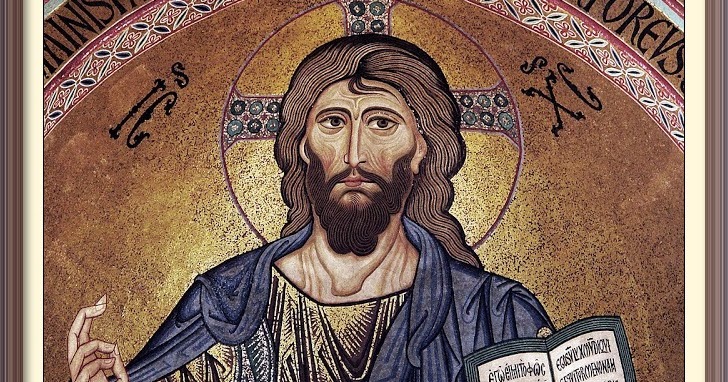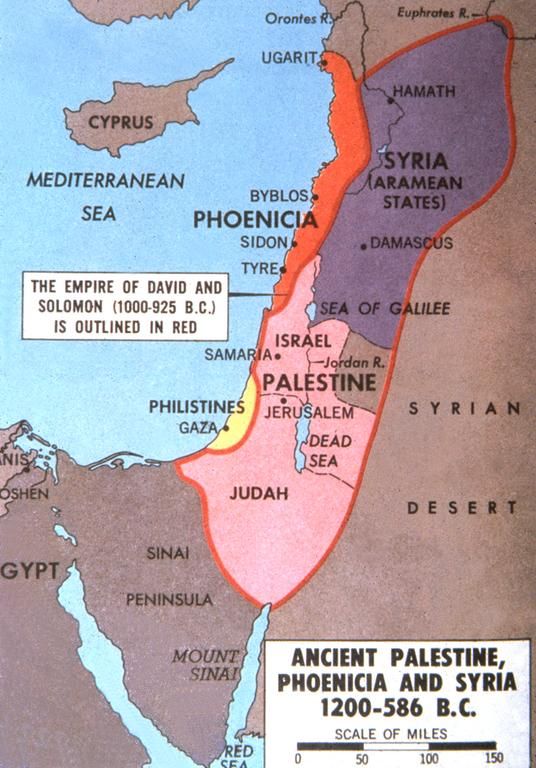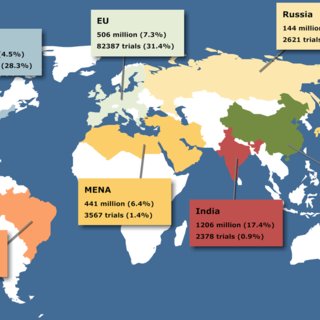If Jesus Were Alive Today—Would He be a Judean Jew, Palestinian Christian, Muslim Arab, or Something Else?

By: John Mason / Arab America Contributing Writer
As we move into the Holy Week of Easter, the Jewish celebration of Passover, and the Muslim holy month of Ramadan, it is timely to ponder Jesus’ place in the geography and history of the Holy Land. If Jesus were alive today, he would probably want to shed a light on injustice, resist authority, defend the oppressed and poor, and, generally, raise some Cain. But that is a philosophical, religious cut at how the expected Christ figure might act. History, ethnicity, language, religion, and politics would have circumscribed Jesus’ behavior in ways we can’t know. But we can suggest how these might have shaped our perception of the historical Jesus.
Where Jesus was born, his ethnicity
Was Jesus born in Palestine? Well, yes—and no. He was born in the Middle Eastern region which was known as Judea at the time. But the Roman rulers of that region changed the name of Judea to Palestine sometime after Jesus’ birth. About a hundred-plus years after. So, yes and no are the answers to Jesus’ birthplace.
As to the origin and ethnicity of Jesus’ parents, Mary and Joseph, they were both from Nazareth, though their roots came through Bethlehem of Judah or Judea. Jesus was born, according to biblical sources, in Bethlehem. Biblically, Joseph was married to Mary, the mother of Jesus and, in light of the virgin birth, Joseph became Jesus’ legal father.
But even the name Palestine is a bit puzzling. It derives from a people named the Philistines. They were ancient people who lived on the south coast of Canaan long before Jesus’ birth. They seem to have been seafaring people, perhaps from the Aegean Sea or the southern European area. The Philistines had a conflict with the ancient Egyptians and later with the Israelites.

Because the Israelites became an annoying thorn in the Roman’s side, the Romans, according to one source, Kehilc1, “decided finally to end the insurrection once and for all. The Romans understood how important the land was to the Jews. So, to (as the saying goes) hit them where it hurts, they decided to disperse the Jewish people from the region and erase all Jewish identity from the land – by removing the name Judea and renaming the region after their historical, mortal enemies: the Philistines, using Latin derivative Palestine. And so, for the very first time, Judea was called Palestine.” Greek historian Herodotus, however, used the name Palestine in the 5th century B.C.
“For that reason, although saying that Jesus was born in Palestine is not entirely false, it is not entirely true, either. Positively put, it is historically inaccurate.” It does not fit with the Scriptures. But it also indicates that Palestine has been known by that name for a very long time, for more than 2,000 years!
Is saying that Jesus was born in Palestine political?
Well, yes and no. According to Scripture, no. According to retrospective Roman history, yes. The Romans’ removal of the Jewish identity from Judea, replacing it with the name Palestine, was politically motivated. Perhaps calling Jesus a Palestinian, thus removing his Jewish identity is problematic. Certainly, the Romans wanted to remove the Jews from their ancestral land, so why not just give Jesus a new nationalistic identity, as well?
More “facts” about Jesus are that he was baptized by his disciple John the Baptist. John was a Galilean who was killed by a local ruler before Jesus’ crucifixion. An interesting distinction between John and Jesus was, according to a source Reflection, “Rather than emphasizing sin, punishment, and moral renewal, as John did, Jesus portrayed God as reaching out to those who had turned aside. His was a message of love and joy…” How appropriate for today’s situation in which Palestinian refugees could use a little of that!
One controversial source, cited in Al-Jazeera, refers to Christ as “a Palestinian refugee.” Though that will be a stretch for some readers, let’s stay with the idea for a moment. Here we rely on a Muslim, scholar Hamid Dabashi, quoting The Quran on the birth of the holy child. Dabashi says, “The sublime innocence of Mary at hearing this news can hardly be better captured in any scripture.” Then quoting The Quran: “She said, ‘My Lord, how will I have a child when no man has touched me?” [The angel] said, ‘Such is Allah; He creates what He wills. When He decrees a matter, He only says to it, ‘Be,’ and it is” (The Quran 3:47).
Muslims, based on that Quranic verse, accept the virgin birth of Jesus. They stop short, however, in accepting that Jesus is the ‘Son of God.’ Dabashi goes on to talk about our present “world plagued by religious bigotry and historical illiteracy. Generations of European depictions of Christ as a blonde-haired, blue-eyed white man has made it difficult for European and North American Christians today to imagine him for what he was: a Jewish Palestinian refugee child who grew up to become a towering revolutionary figure.”
For Dabashi, the answer to the question of whether Jesus was born in Palestine is politically motivated, is a definitive yes.

Today Jesus would probably self-define as ‘MENA’ — Middle Eastern/North African
Were Jesus transposed to contemporary American society, he would undoubtedly identify his origin along with Arab Americans as ‘MENA,’ shorthand for the U.S. Census Bureau’s Middle East/North Africa category. Analogous to Jesus in America is Mary and Joseph in the modern West Bank.
Dabashi cites a Nazareth-born Palestinian filmmaker Elia Suleiman who made a short film in 1999 on just that subject. Called ‘Cyber Palestine’, he presents the story of a modern-day Mary and Joseph as they attempt to cross from Gaza into Bethlehem. “As a parable of the Palestinian predicament in their homeland, ‘Cyber Palestine’ captures the quintessence of the story of the birth of Christ under the military occupation of the Romans then and the Zionists now.”

Both peoples, the Jews and non-Jews or Gentiles and Christians of Palestine have a right to their inherited lands. Jesus would have wanted his Jewish comrades and his Christian brethren to share in the holiness of this historic land. As Dabashi notes, “The very simple fact that Palestinians have historically been Jews, Christians, and Muslims was hard to digest [by some].” Furthermore, Dabashi avers that “Jesus was a Palestinian Jew who spoke Aramaic, a language in the same family as Hebrew and Arabic. He came from the same prophetic tradition as Prophets Moses and Mohammad.”
Finally, in this moment of celebration of Easter, Ramadan, and Passover, we should ponder what we need to know from literary knowledge, the consciousness of history, and some sense of intellectual integrity to break through the barriers of separation and hatred that divide so many. Without sounding pollyannish, this is what Jesus would probably preach. He would express it as a matter of divine mercy.

Sources:
–“Was Jesus Born in Palestine?” Kehilc1, 10/13/2016
–“The Historical Jesus: Then and Now,” Reflections, 2020
–“Palestine at the time of Jesus,” Britannica, no date
–“Remember: Christ was a Palestinian refugee,” (by Hamid Dabashi, the Hagop Kevorkian Professor of Iranian Studies and Comparative Literature at Columbia University), Al-Jazeera, 12/25/2018
John Mason, PhD., who focuses on Arab culture, society, and history, is the author of LEFT-HANDED IN AN ISLAMIC WORLD: An Anthropologist’s Journey into the Middle East, New Academia Publishing, 2017. He has taught at the University of Libya, Benghazi, Rennselaer Polytechnic Institute in New York, and the American University in Cairo; John served with the United Nations in Tripoli, Libya, and consulted extensively on socioeconomic and political development for USAID and the World Bank in 65 countries.
Check out our Blog here!









